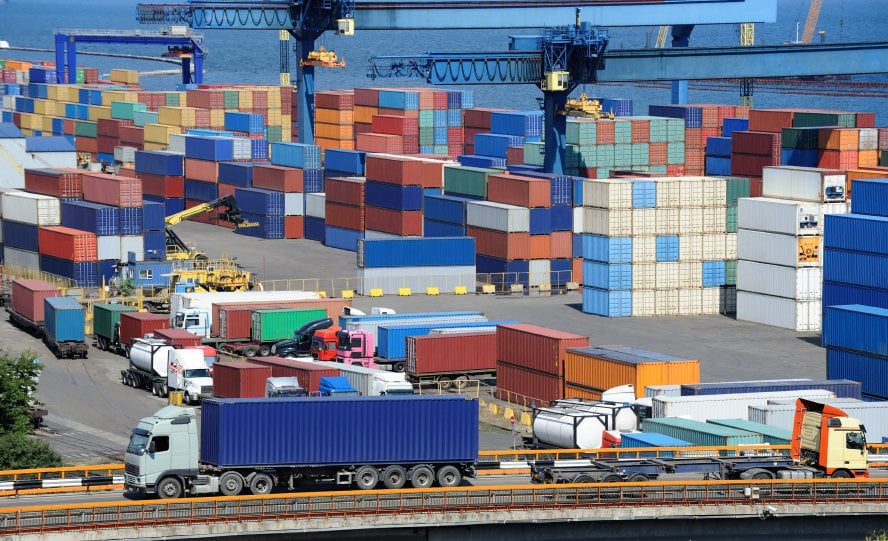If you are planning to ship to West Coast then you need to know about the Traffic Mitigation Fee in order to pick up your cargo from the terminal without any delay in peak hours. Those of you who are in the West Coast area already know about this but let’s check how PierPass was established and explain why this fee is necessary.

PierPass is a not-for-profit company created by marine terminal operators at the Ports of Los Angeles and Long Beach in 2005 to address multi-terminal issues such as congestion, security and air quality. PierPass charges a traffic mitigation fee on daytime traffic, with the revenues used to partially compensate terminals for operating night and weekend gates. in other words, PierPass is a system to collect fees on a large scale from cargo owners to pay terminal operators directly.
Before PierPass was created in 2005, the ports and nearby roads were gridlocked, ships were backed up in the harbor unable to unload, and cargo owners suffered long delays in receiving and shipping vital goods.
The Traffic Mitigation Fee helps pay for the night and Saturday marine terminal shifts created by the PierPass OffPeak program to relieve daytime congestion in and around the ports. It also provides a financial incentive to move cargo during less-congested times. The TMF is charged for non-exempt containers moving during peak hours (Monday through Friday, 3 a.m. to 6 p.m.).
All international container terminals in the two ports have five shifts per week and trucking companies are encouraged to spread their services among the shifts to prevent bottlenecks. It’s a partnership among the marine terminal operators and aimed at easing truck congestion, improving security and helping air quality.
PierPASS was immediately successful shifting 30 to 35 percent of all marine terminal gate activity to nights and weekends within the first six months of operations. By July 2008, OffPeak diverted more than nine million truck trips from peak daytime traffic. On average, 68,000 truck trips—or about 40% of all container moves—occur during the new shifts. Without the OffPeak program, most of these trips would shift back into peak daytime traffic, causing heavy congestion on highways approaching the Los Angeles and Long Beach ports and increasing local air pollution.
Over the past nine years, the OffPeak program has diverted 29 million truck trips from daytime hours to night and weekend shifts. The extended gates in the busiest times of the year include up to four night gates during the week and a Saturday gate. The PierPass OffPeak gates have grown to handle approximately 55 percent of all container traffic at the ports, accommodated more than 23 million truck transactions, and greatly eased congestion on city streets and nearby freeways during daytime business hours. Even though terminals operate up to 10 shifts a week, congestion still occurs at times, and PierPass has studies underway to address this problem.
The terminals have operated the OffPeak gates at a loss since the program’s start in 2005, when they doubled the number of shifts per week, spreading the same number of containers over twice the working hours. Cargo volume since 2005 has been flat. The shortfall between TMF revenues and OffPeak gate costs was $66 million in 2012, $55 million in 2011 and $52 million in 2010.
Adding the night shifts in 2005 substantially increased costs for terminal operators. The immediate effect of opening the night shifts was to spread the same amount of volume over twice the number of hours. In addition, nighttime labor rates are significantly higher than daytime rates. Hourly labor costs have increased 31 percent.
A number of options were evaluated by marine terminal operators to cut the losses, including adjusting the rate, decreasing the services offered or instituting a fee on OffPeak cargo. Adjusting the rate was determined by the marine terminal operators to be the most effective and least disruptive way to reduce the losses. While OffPeak was never intended to be a profit-making venture, the terminal operators can’t continue sustaining operational deficits at the current levels.
Since 2011, The West Coast Marine Terminal Operators Agreement has been adjusting the traffic mitigation fee annually based on changes in maritime labor costs. WCMTOA announced an 8.1 percent increase in the traffic mitigation fee at the ports of Los Angeles and Long Beach, Calif., effective Aug. 19 2013, in order to sustain continued operation of PierPass OffPeak gates amid labor cost increases. The current rates are per TEU 20-foot-equivalent unit to $66.50 per TEU or $133.00 per 40-foot-equivalent unit. Beginning in mid-2012, the TMF will be adjusted annually based on changes in Pacific Maritime Association maritime labor costs.
The OffPeak program provides tremendous value and future growth potential to the goods movement industry, greatly increasing the capacity of America’s largest port complex without requiring additional infrastructure. OffPeak is one of a series of programs by port stakeholders that have greatly reduced congestion and air pollution around North America’s busiest port complex. The program adds to the tremendous competitive advantage held by the Los Angeles / Long Beach port complex, which has the most concentrated set of assets of any port in the country, has a workforce that’s ready, available and flexible, and has made remarkable strides in mitigating impacts on local communities.




